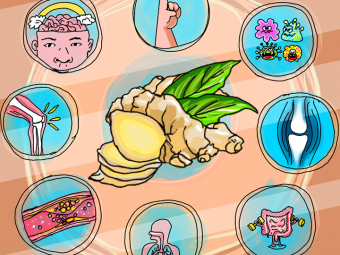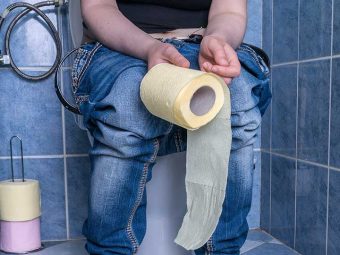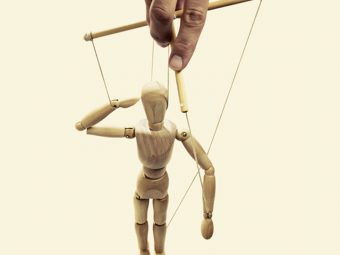10 Lies You Shouldn’t Tell Your Doctor

Image: Shutterstock
Visits to the doctor are scary. You know you’re in your doctor’s chamber only to hear some sort of bad news. Even if it’s not a bad as you think! Plus, combined with the barrage of sometimes personal, sometimes awkward questions that your doctor subjects you to, you know it’s going to be the most supremely uncomfortable time. So, you do what you do best – you lie.
However, lying to your doctor is not good as it can lead to a misdiagnosis. Here are 10 falsities you should never utter in front of your doctor:
1. I’m Having All The Medicines You Asked Me To, Doc.
This is a serious lie that should not be spoken. According to Dr. David B. Agus, when you lie about having the meds you were prescribed, you cause an unnecessary adjustment of dosage or a change of medicine (1). The result of this is that high dosages can cause side effects such as a high BP or heart rate (2). All of which means that instead of getting cured, you develop new problems.
2. No, I’m Not On Supplements Or Prescription Drugs Right Now.
You might think it’s harmless to hide this information, but it’s not. Not telling your doctor about the prescription medications you’re on such as antidepressants, blood thinners, over-the-counter meds, and the like can cause side effects. That’s because your doctor won’t know how the drug will react to your current prescription. As a result, you may end up with serious side effects such as an irregular heartbeat, low BP or a damaged liver, explains Dr. Gail Saltz of the New York Presbyterian Hospital Weill-Cornel School of Medicine (3).
3. I Never Ate Or Drank Before Coming For This Surgery.
If you don’t want to land up in the ICU, you should never lie about this! According to M. Fahad Khan, assistant anesthesiology professor at the Langone Medical Center at NYU, if you lie about when you had your last meal or drink before surgery, you can severely affect your anesthetic plan (4). If you’ve eaten when you weren’t supposed to, there’s a high chance that after anesthesia, your food may travel up from your esophagus to your mouth and into your lungs, which can cause pneumonia (5).
4. I Don’t Drink Too Much Alcohol.
Granted, confessing your drinking habits to your doctor can be embarrassing, but they shouldn’t be hidden. Dr. Harriet Hall, Science Based Medicine’s editor, says when you’re dishonest about your alcohol consumption, you cause a delay in both treatment and diagnosis (6). Besides, alcohol can also interfere with a drug’s effectiveness. What’s more, hiding this info can be life-threating, says Dr. David Juurlink of Toronto’s Sunnybrook Health Sciences Centre (7). Alcohol withdrawal can arise when a patient is admitted to the hospital, and this condition is hard to diagnose as well as fatal (8).
5. I Don’t Smoke!
Studies show that 13% of smokers do not tell their doctor that they smoke (9). British Columbia-based GP, Dave Hepburn says that most patients refer to themselves as ex-smokers due to the stigma that surrounds smoking (10). However, lying about smoking can prevent doctors from finding out if you’re suffering from any smoking-related condition or not, such as heart disease or cancer. This can lead to the wrong treatment.
6. I Don’t Ever Do Drugs Either.
Drugs are illegal. So, it’s natural for patients to hide their habits from their doctor. Although they can’t for long as drugs taken show up in urine tests, says UC Davis assistant clinical professor, Dr. Ramin Manshadi (11). The logic behind revealing your drug history is the same as that of your medication history. Drugs can react to and interfere with the medications prescribed (12). Especially in emergency cases where the prescription of wrong medications due to hidden information can lead to death.
7. I Eat Healthy And Exercise Daily.
Lying about your lifestyle to your doctor is only going to hurt you in the long run. Problems such as diabetes, high BP, and cholesterol are far too common and these show up in tests even if you don’t tell the truth about your lifestyle. Instead, what you should do is be honest about it with your doctor so that you can get useful tips to manage your condition, says Dr. G. John Mullen (13).
8. I’m Not In The Habit Of Taking Painkillers.
You may tell your doctor you only occasionally have painkillers when you may be popping a pill every day. Dr. Khan says that not telling your doc about it can be fatal as acetaminophen toxicity is very dangerous (14). The only way your doctor can prescribe a safe plan to manage this pain is if you tell them how many painkillers you actually have. If you lie about it and your doctor prescribes high dosages, you may suffer from liver failure.
9. I Don’t Feel A Thing.
Being in a doctor’s office is not the time to be macho. Downplaying your symptoms in order to save expenses can actually aggravate your symptoms and lead to much worse complications, according to Dr. Manshadi. Go to free clinics if you want to save up, but don’t lie about your symptoms.
10. Yep, I Completely Understand What You Said.
Research shows that people immediately forget anywhere between 40% to 80% of the information that doctors give out (15). This is inexcusable because if you forget precise instructions, your chances of getting better reduce by a lot. Hence, ask for a written prescription if you can’t remember things. Also, ask your doctor questions when you don’t understand something.
You don’t have to pretend in front of your doctor. If you really want to get better, be honest. It’s better than coming back with bigger problems.



























